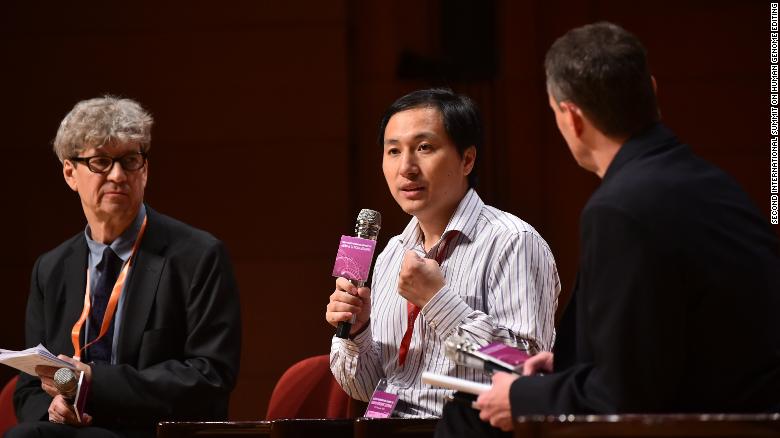Did Genetics Go Way Too Far?
December 10, 2018
In 1987, biotechnology was revolutionized.
That year, CRISPR- Cas9 was created. CRISPR stands for Clustered Regularly Interspaced Palindromic Repeats while Cas9 is a scissor-like enzyme. When it was discovered that CRISPR-Cas9 had the ability to edit genes, some began to feel skeptical and feared potential risks. However, despite critics’ concerns, there is a large chance that this “risky” editing can help decrease the chances of developing Hunter’s Syndrome, Sickle Cell Anemia, and Cystic Fibrosis. Yet, many saw this tool as an opportunity to change an embryo’s hair color, eye color, and even skin color thus creating the term “designer babies.” This spurred discussion around the ethics of this biomedical advancement. Scientists have agreed upon the understanding that the line of embryo editing should not be crossed until the risks are further understood and can be reduced.
That was until, in recent news, Chinese scientist He Jiankui announced to the world in a Youtube video that he has successfully used the gene-editing tool CRISPR-Cas9 to modify the DNA of two embryos before birth, essentially creating the world’s first genetically modified humans. His work resulted in two reportedly healthy twin girls born from embryos altered to make them resistant to HIV. This information left the science community in shock, with William Hurlbut, Senior Research Scholar at Stanford University Medical Center’s Department of Neurobiology admitting that he , “[sees] it as one of those moments that happens once every few decades. Where someone does something that so dramatically changes the landscape that the world will never be the same again.”
Jiankui’s research has not been as appreciated as much as he had hoped. Since he released the information regarding the embryos, his whereabouts became unknown, his project got suspended, and the Chinese government opened an “immediate investigation.” Xu Nanping, the nation’s vice minister of the Ministry of Science and Technology, said that he had “brazenly violated Chinese laws and regulations and breached the science ethics bottom line.” Feng Zhang, one of the inventors of the gene-editing technique CRISPR and member of the Broad Institute of MIT and Harvard told CNN, “No one expected that someone would do this experiment on a human embryo. The scientific community didn’t actually know anything about what was going on.”
